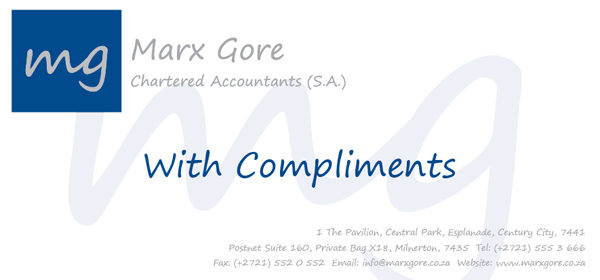The Davis Tax Committee (DTC) was appointed in 2013 by then-Finance Minister Pravin Gordhan to investigate “
our tax policy framework and its role in supporting the objectives of inclusive growth, employment, development and fiscal sustainability”. Those who listened to the recent Budget speech will realise how influential the DTC has become.
Recently, the DTC’s overview on Macro Analysis was released to the public. The report sets out the framework for how the DTC will approach its task
The DTC proposes to make tax more rational and more just. So that alone makes for a good process.
But it also makes clear that tax is about the choices made by those in power and as a developmental state (where the state plays a leading role in the economy) we can expect our total tax burden to increase.
The key principles
The report examines how effective and efficient tax laws and tax collections are. The commission accepts that taxes need to be progressive to support reducing poverty and inequality. The DTC agrees that the best tax system is where there is a high degree of voluntary compliance from taxpayers. With this background the DTC sets out the key principles of a good tax system. These are -
- Economic efficiency – the tax system should support economic growth and taxes levied should be spread as widely as possible at the lowest possible rate of tax. Taxpayers should thus not change their behaviour to avoid tax.
- Administrative efficiency – the cost to collect tax and the cost to taxpayers of compliance should be minimised.
- Equity – taxpayers with similar resources should pay the same amount of tax and the system should be progressive. Those with more means should pay more tax than the poorer sections of the community.
- Fairness – apart from the redistributive aspect above, all taxpayers should be treated on the same basis.
- Revenue Buoyancy or the ability to raise taxes at all levels of the economic cycle. This includes having the characteristics to support counter-fiscal policy i.e. tax revenues will be sufficient to finance government expenditure during economic contractions.
Good system design
For a good system design, the tax system should have the following features -
- Neutrality – similar activities are taxed along the same lines. If the same rules apply to all taxpayers there will be less incentive to avoid taxes.
- Simplicity – it should be transparent and have low administration costs. Greater complexity will reduce transparency, raise administration and compliance costs and encourage avoidance.
- Stability – the more tax policies remain unchanged the lower are compliance costs and there is more certainty in the system. There will always be times when rules will need to change and these rules must be clearly articulated and stakeholders consulted.
One interesting aspect that the DTC emphasised is the need to look at the tax system holistically. Each individual area (income tax, VAT etc) must have a well-thought-out rationale but the system needs to be also looked at in its totality.
So, what does the future hold for us?
How do our taxes stand up to these criteria? The answer is, at best, average.
The eFiling system has clearly eased the cost of compliance and administration costs for SARS, but the taxpayer has felt an increased compliance burden for the past several years.
Personal income tax is progressive and holds up relatively well in economic downturns.
However, the DTC believes death duties will need to be an area of focus as there is too much avoidance via instruments like trusts. They have also mooted the possibility of an annual wealth tax.
Whilst VAT is not a progressive tax, zero rating of basic foodstuffs brings more relief to lower income groups.
The DTC plans to measure the efficiency of the VAT system to see if there is scope to increase collections without raising the rate of VAT.
Corporate income tax (CIT) is clearly a problem area. Global trends have to be considered, particularly as our CIT rate is high even against many other developing countries. This encourages avoidance schemes which are becoming a feature of South Africa’s corporate tax arena.
This is going to be an area of intense focus. Already the DTC has released papers on Base Erosion and Profit Shifting (BEPS) – this is the way whereby companies shift profits to lower tax countries, resulting in countries like South Africa losing tax revenues. The DTC plans to come up with aggressive strategies to counteract BEPS.
There are also anomalies in CIT as many incentives have been added such as accelerated depreciation on plant and machinery. This gets back to the earlier point of looking at tax holistically as opposed to implementing quick fixes which often backfire in the longer term.
In other areas like customs, excise and ad valorem taxes, there is unlikely to be significant change.
All in all, it looks as though more transparency and certainty will be incorporated into the tax system. Overall tax policy should improve but we need to expect that taxes will rise.
Have your say!
Public comments on the Macro Analysis (abridged and full versions available at
www.taxcom.org.za) can be sent by e-mail to
taxcom@sars.gov.za or by post to PO Box 2344, Brooklyn Square, Pretoria, 0075.
The closing date for comments is 31 August 2015.










